
We Have a Name is a collage art book of oral histories collected from indigenous women healers on the island of Lembata. Reflective of both clinical and nonclinical approaches to healing, the book foregrounds the question of whether or not indigenous women can negotiate terms for inclusion of herbal and social medicine in Indonesia’s clinical health system. Indonesia’s indigenous brilliant women healers run the risk of being silenced in future generations. Let them educate you by reading their stories.
Meet Ibu Bertha:
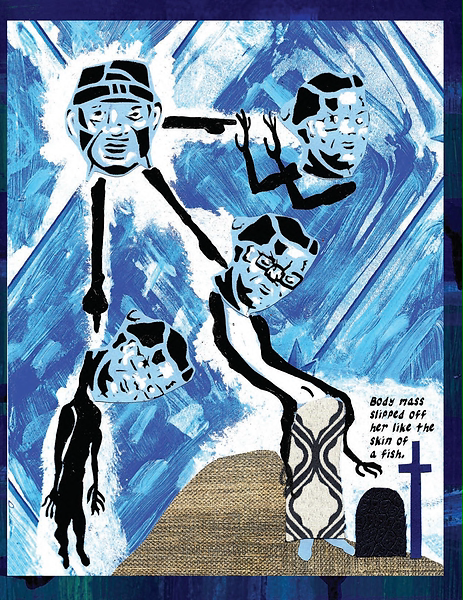
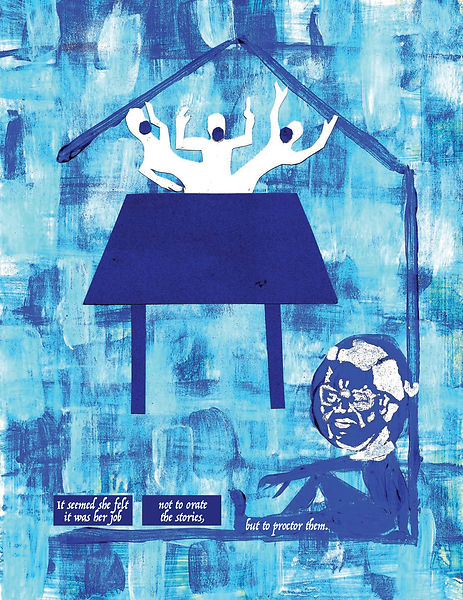
As an herbalist, Bertha is the right hand of her charismatic husband.
She runs a homestay where she houses foreigners sick with maladjustment.
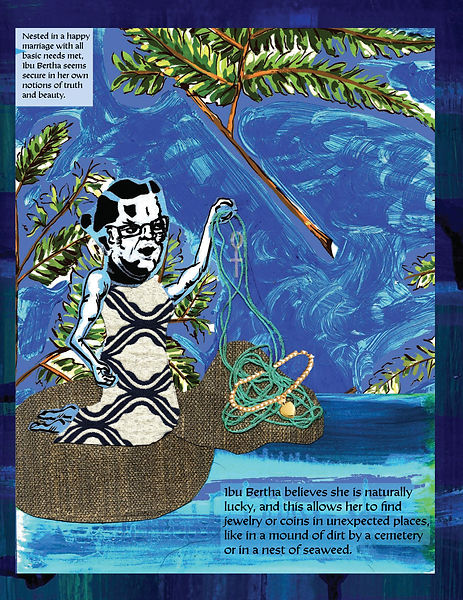
Late to motherhood, she guards the neighbor’s children when they collect trash at the beach.
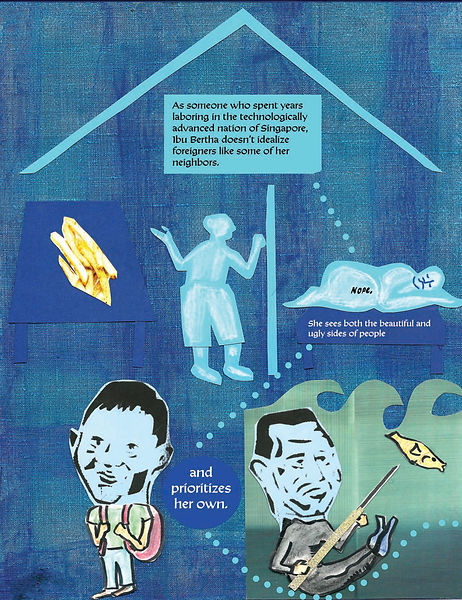
She is a slave to her anxiety until she loses herself in wonder to a treasure hidden in a fish’s bladder or a revelation waiting to reveal itself in her son’s homework.
Meet Ibu Leny:
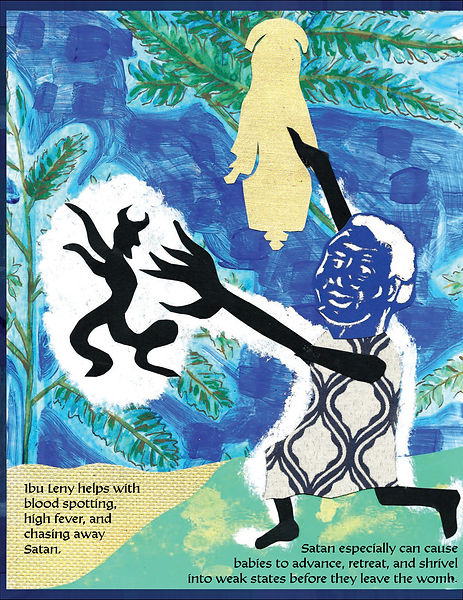
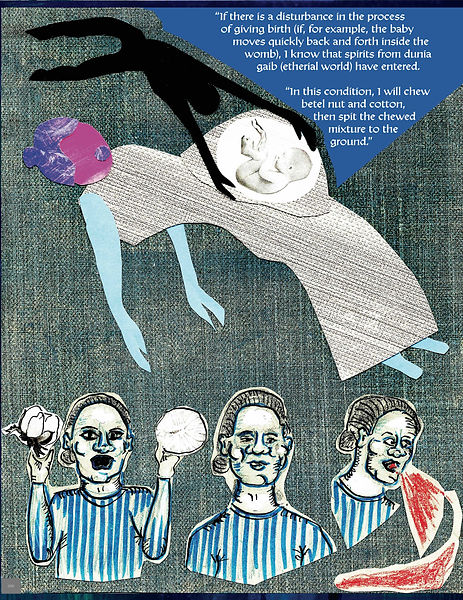
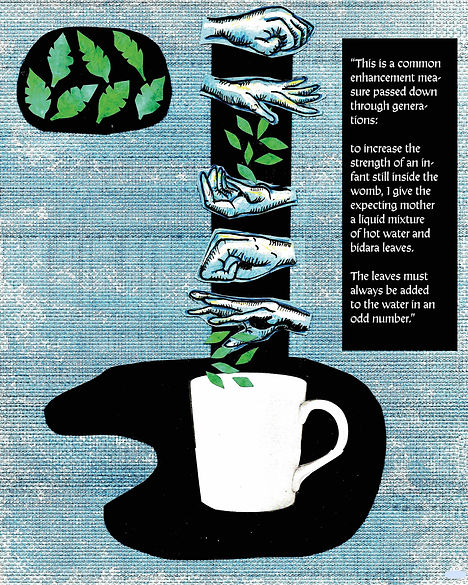
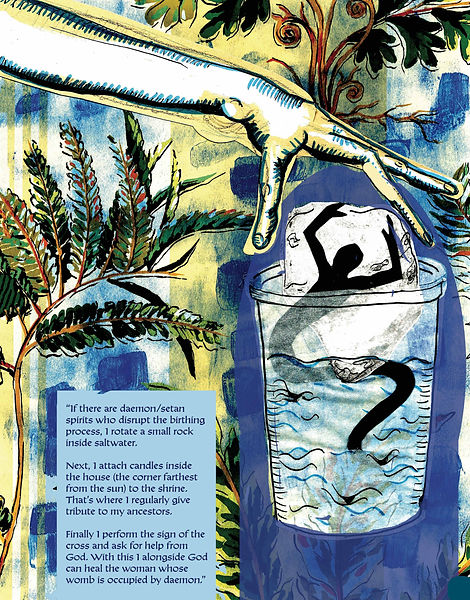
Ibu Leny can chase Satan from your body
just by gripping whichever part of your body is swollen.
A certified clinician, she trained two generations of midwives
before retiring to her herb garden where neighbors seek cures for a plethora of maladies.
Meet Ibu Ida:
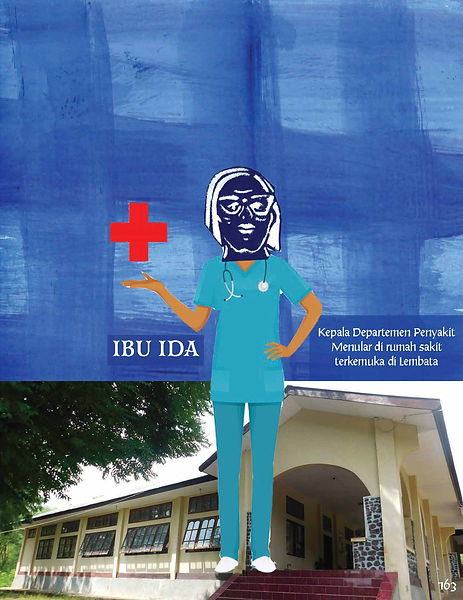

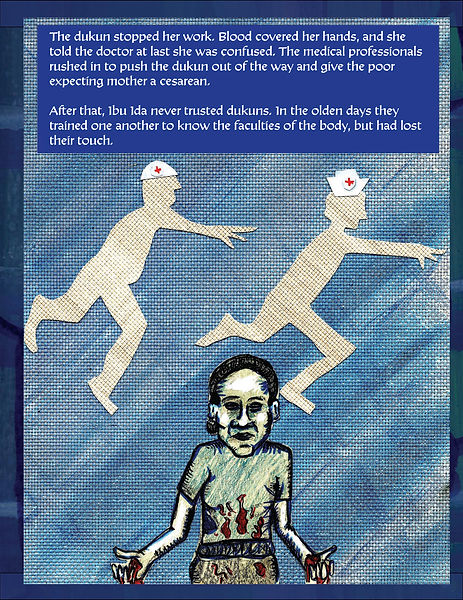
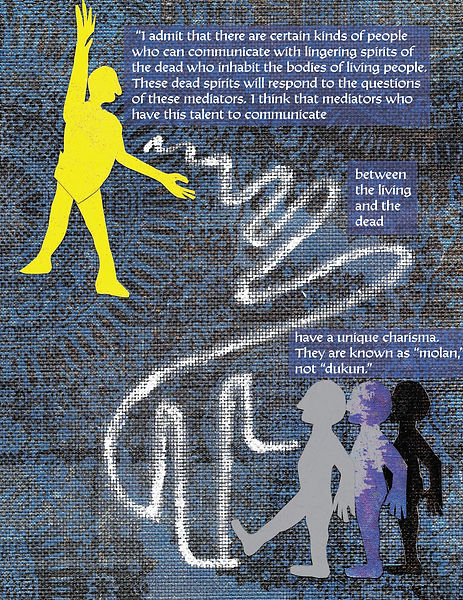
Now Lembata’s leading expert on infectious diseases, Ibu Ida remembers herself as a young midwife:
Indigenous healers duped patient after patient about skills they did not have.
Childbearing women paid with their bodies, bleeding out on hospital beds.
Ibu Ida does not advise going to charismatic healers unless they are exorcists.
Meet Ibu Fiona:

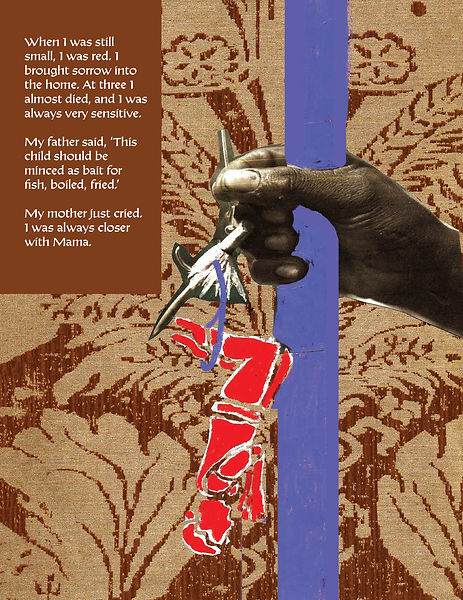
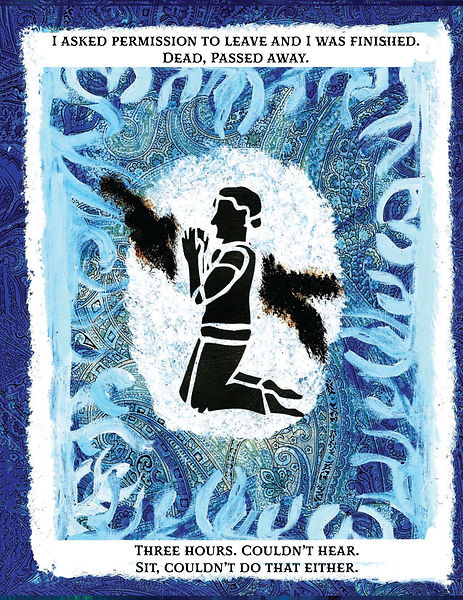
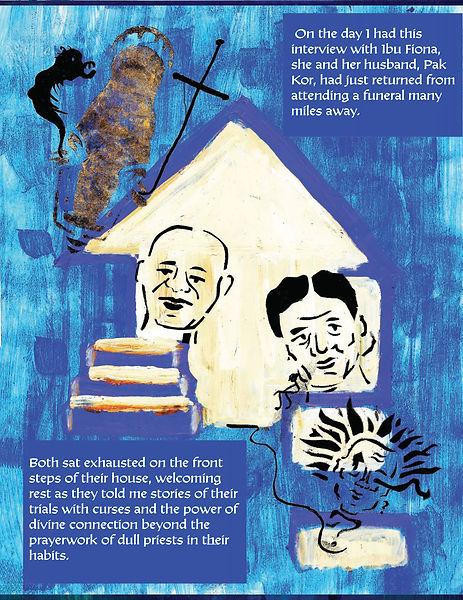
She used to pray away illnesses of others.
Mother Mary’s healing power infused her like opium.
Then a neighbor's curse sent her into a coma. When the priest failed to revive her, a shaman brought her back to life.
Now her gift to the cosmos is her continual supply of hand-dyed fabric and handwoven textiles sold at a price more modest than they are worth.
Meet Ibu Maria:

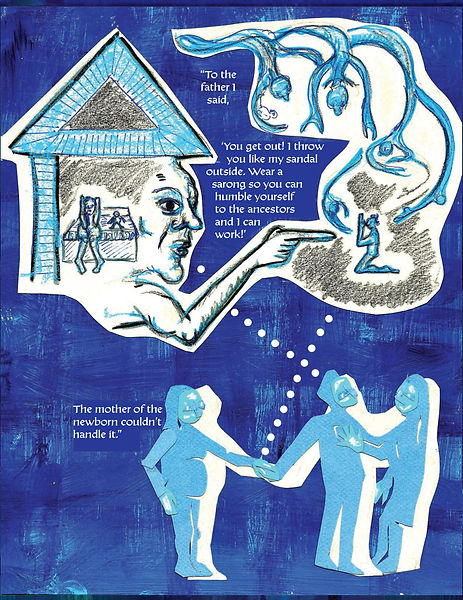
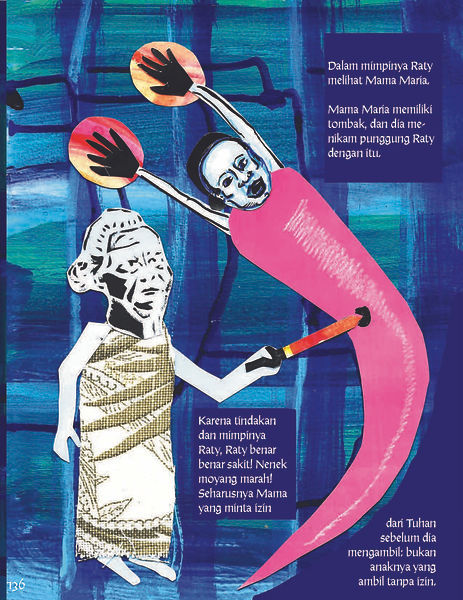

At 83 she spent five decades helping women birth babies in towns with poor roads.
She can detect broken homes through divine messages delivered in dreams.
She is wedded to certain plants, plants even her children cannot use without permission.
Disappointed by clinical medicine, she keeps hospitals at a mountain’s distance until she receives the call to weigh herself.